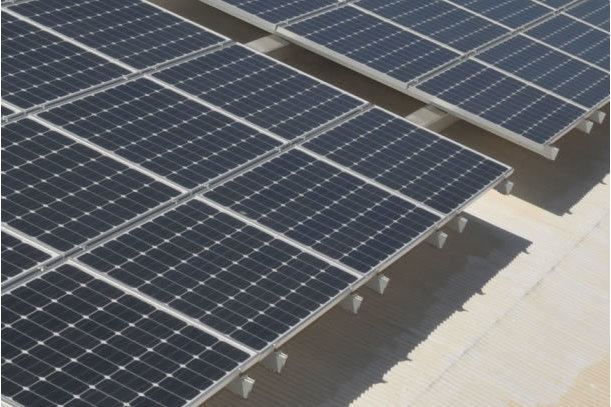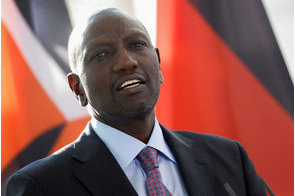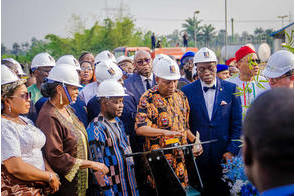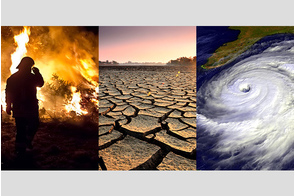Latest News
UK announces £100 million extra funding for renewable energy in Africa

News Highlight
The new investment is in addition to the £48 million previously committed to the Renewable Energy Performance Platform (REPP), which already supports 18 renewable energy projects in SSA.
The British government has announced an extra £100 million (or N45.8 billion) funding for renewable energy projects in sub-Saharan Africa (SSA). Claire Perry, Minister of Energy and Clean Growth, made the announcement at the 24th Conference of the Parties (COP24) to the United Nations Framework Convention on Climate Change (UNFCCC) in Poland.
“This £100 million will help communities harness the power of their natural resources to provide hundreds of thousands of people with electricity for the first time,” Perry said. “Building these clean, reliable sources of energy will also create thousands of quality jobs in these growing economies.”
According to a statement released by the British High Commission in Abuja on Tuesday, the new investment is in addition to the £48 million (N21.98 billion) previously committed to the Renewable Energy Performance Platform (REPP). The REPP already supports 18 renewable energy projects in SSA. These projects, including solar, wind, biomass, hydro and geothermal technologies, are expected to provide new and improved access for more than 4.5 million people over the project lifetime and create over 8,000 jobs during development and operation.
Over the next five years, the new funding will support up to 40 more renewable energy projects. It will also unlock an extra £156 million of private finance into the renewable energy markets in Africa by 2023.
According to the statement, power produced from the new projects is expected to cut around three million tonnes of carbon – the equivalent of the emissions from burning 21,000 railway cars of coal or from 800,000 cars in a year.
Some of the REPP projects include mini-grids in Nigeria, which will provide 72 rural villages with pay-as-you-go clean, reliable energy and create 2,500 jobs during construction and 430 when it is completed. The projects also include hydropower from the Nzoia River in Kenya, providing 290,000 people with energy and creating 330 jobs.
Others include biomass plants in Ebolowa and Edea, Cameroon. This will provide clean energy for 520,000 people in the rural area and create 460 jobs. In Burundi, also, solar power project to provide electricity for 87,600 people and business and create 300 part-time jobs and 50 full-time jobs.
Perry said, “At home, we’re world leaders in cutting emission while growing our economy and abroad, we’re showing international leadership by giving counties a helping hand to shift to greener, cleaner economies.”
She added that the United Kingdom is committed to investing £5.8 billion in international climate finance by 2020 to encourage ambitious action from other governments, the private sector and communities in the global effort of tackling climate change.
To date, the UK climate finance has supported 47 million people affected by climate change, provided 17 million people with improved access to clean energy and installed 590 megawatts of clean energy.
The COP24 held in Katowice, Poland on December 3-14. The UNFCCC and its annual COPs are instrumental in ensuring international cooperation in view of tackling the impacts of climate change.
In October, the Intergovernmental Panel on Climate Change (IPCC) had released a report calling for urgent action within the next 12 years to limit the devastating effects of global warming. The 700-page report shows that the average global warming would be considered moderate if temperatures increase to 1.5°C.
The report, however, warns that a 2°C increase should be avoided to forestall the enactment of some worst-case scenarios of global warming. The global mean temperature is currently at 1.2°C.
Related News
Latest Blogs
- CBN is fighting inflation instead of stagflation
- Why electricity privatization failed (2)
- How net metering can boost embedded power generation
- Adaora Umeoji and gender in Nigerian banking leadership
- Is protest an endangered human right of Nigerians?
Most Popular News
- IFC, partners back Indorama in Nigeria with $1.25 billion for fertiliser export
- Ali Pate to deliver keynote speech at NDFF 2024 Conference
- Univercells signs MoU with FG on biopharmaceutical development in Nigeria
- CBN increases capital requirements of banks, gives 24 months for compliance
- CBN settles backlog of foreign exchange obligations
- Nasdaq Dubai welcomes $600m sukuk listing by Islamic Development Bank






